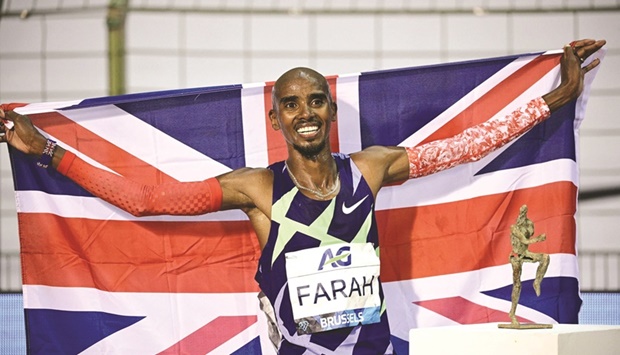London’s Metropolitan Police have opened an investigation after British Olympic great Mo Farah made stunning revelations he was illegally trafficked into Britain as a child.
The 39-year-old Somalia-born athlete – who won double Olympic gold for his adopted country at both the 2012 and 2016 Games – revealed in a BBC documentary this week his real name is Hussain Abdi Kahin.
He said that he was forced to work in domestic servitude after entering the country aged eight or nine.
He was not allowed to go to school until the age of 12.
“Deciding to speak out and making the film has been a difficult and emotional journey, as I didn’t fully understand what had happened to me,” Farah said about the documentary The Real Mo Farah in a post on Instagram. “But, now that my twins have reached the aged I was when I came here, I felt it was the right time to ask these questions and discover more about my childhood.”
“We are aware of reports in the media concerning Sir Mo Farah,” said the Metropolitan Police in a statement yesterday. “No reports have been made to the MPS (Metropolitan Police Service) at this time. Specialist officers have opened an investigation and are currently assessing the available information.”
“Where offences are reported in the media which are deemed significant public interest and there is no cause to disbelieve then the Met can create a crime report,” the statement said.
Farah was helped to obtain UK citizenship by his physical education teacher at school, Alan Watkinson, while still using the assumed name Mohamed Farah given to him by a woman who trafficked him to Britain.
On Wednesday, Farah was assured by the British government he would not be stripped of his citizenship, with a spokesman for Prime Minister Boris Johnson describing him as “a sporting hero”.
Rather than moving to the UK as a refugee from Somalia with his mother and two of his brothers to join his IT consultant father as previously claimed, Farah said he came from Djibouti with the woman he had never met, and then made to look after another family’s children.
In fact, he said, his father was killed in civil unrest in Somalia when Farah was aged four and his mother, Aisha, and two brothers live in the breakaway state of Somaliland.
His cousin Harun Aden – who also lives in Somaliland – told The Times that Farah’s father Abdi, a farmer, had been killed by shrapnel from a bazooka and the youngster had been sent to live with an uncle in Djibouti.
“Mo was very young and could not work and it was a time of poverty and war,” said Aden. “He was sent to Djibouti to save his life and help his family because they could not care for him.”
Aden says he calls Farah by his birth name Hussain: “Mo is like his nickname to us.”
Aden – a father of nine who was left disabled after being shot – says Farah has looked after his closest family, paying for their houses with the money he has made during his stellar career.
“He supports his mother and siblings,” said Aden. “I haven’t had any money from him but I am not upset about that. He has worked very hard for what he has and it is enough for me that he helps others who need it more.”

This file photo taken on September 5, 2020, shows Mo Farah celebrating after victory and a world record in the men’s one hour event at the Diamond League AG Memorial Van Damme athletics meeting in Brussels.
